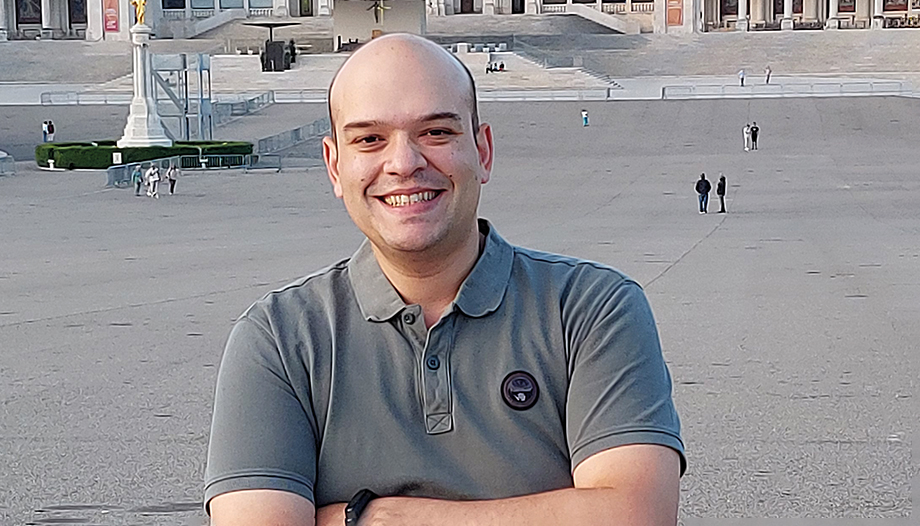César David Villalobos is a native of the Diocese of Cabimasin Venezuela. As he himself points out "The seminar was not a project for me. I had studied computer engineering and telecommunications. I dedicated myself to work but, over the years, I felt a void that money or work could not fill".
How did you decide to enter the Seminary?
-My family was, like many, "light Catholics. They attended church only for baptisms, first communions and funerals. Eventually, I returned to my parish and began to live the Mass and Eucharistic adoration. I met an apostolate group whose charism is the study of the Holy Scriptures, evangelization and Eucharistic adoration and contemplation. There, in adoration and intimacy with Jesus in the Eucharist, I understood that what was missing in my life was the love of loves.
Little by little I included Jesus in my heart and, with a little fear, I decided to try his way of life and heed the call to the vocation of the priesthood. At the age of 26 I entered the propaedeutic seminary of my diocese of Cabimas, Venezuela. After a few years, my bishop decided to send me to study at the University of Navarra and to train me in the Bidasoa International Ecclesiastical College.
In Venezuela, the Church is going through complicated times. How are the faithful and priests living these moments?
-The mission and spiritual work of priests today is a broad task because they have become great hopefuls of a people that is very weak and tired. The primary task is to evangelize the people, but also to look for ways to help and assist the most needy people. The life of the Venezuelan priest has a capital "s" of sacrifice.
Faith is lived in Venezuela. The great precariousness that fills our days does not extinguish it. The parishioners ask for the celebration of the sacraments. The apostolic movements within the parish are being refreshed and, like everyone else, we look for our hope in Jesus. Impressively, the youth continue to be the great lung.
What are the challenges facing the Venezuelan Church?
-Certainly, the situation in Venezuela is reserved, it has many difficulties and great challenges that must be solved in an adequate manner.
The Venezuelan Church faces several challenges amidst the current landscape. First, Venezuela is experiencing an unprecedented humanitarian crisis marked by shortages of basic services and violence. The Catholic Church seeks to support the affected population and provide humanitarian assistance while weighing some limitations.
Furthermore, the political polarization in Venezuela has affected all the country's institutions. In this sense, the Church must maintain its impartiality and continue to promote dialogue and reconciliation between the opposing parties.
Along with this, the Church in Venezuela has experienced limitations in its religious freedom. Its arduous task is to maintain a respect and defense of the rights of citizens, manifesting the right to freedom of worship.
At present, with so many challenges for Venezuelans, the Church seeks to reconcile, but also to console and raise prayers for our Venezuelan brothers and sisters who have fallen in search of a better life.
The country is immersed in an institutional and political crisis due to the lack of a consensual solution to the political crisis. The untiring work of Venezuelan priests has always been to achieve, through the intercession of the saints, the reconciliation of all Venezuelans. We long for a peace that can guarantee us a life of social welfare and professional development.
How does training in Spain help your work?
-Everything in seminary life is formative. We must always look for something to learn. Every hour that I dedicate to my formation I think of my country, my diocese of Cabimas, my people and my brother seminarians. My heart is the national tricolor. It will be of great benefit to help and transmit with charity what I have learned. It is an opportunity from God that through my bishop I can study and then help and give it all.








